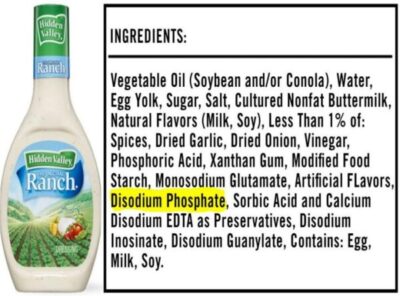 Have you ever wondered why disodium phosphate is always shown on the ingredients label of food packing? Why add it to food?
Have you ever wondered why disodium phosphate is always shown on the ingredients label of food packing? Why add it to food?
Let’s discover the answer by understanding its functions, applications, and safety.
Firstly, let’s find out what it is.
What is Disodium Phosphate?
Disodium phosphate is a water-soluble sodium salt of phosphoric acid, with the chemical formula Na2HPO4. It occurs as a white, granular powder and is highly hygroscopic. Process the EC No. of E339(ii) and CAS No. of 7558-79-4. This compound is an essential source of phosphorus, an essential mineral that plays a crucial role in various physiological processes in living organisms.
For more details please visit our product page:
In What Foods It is Found and Why Adding It?
Disodium phosphate finds itself in a broad range of foods, the following are the common food it involves.
Baked Goods (e.g., cakes, muffins, cookies)
Disodium phosphate acts as a leavening agent in baked goods, contributing to their delightful rise and light texture. When heated, it releases carbon dioxide gas, creating air pockets that expand within the batter or dough. These air pockets cause the baked goods to rise, resulting in soft, fluffy, and well-textured treats.
Processed Cheese
 When it comes to processed cheese, disodium phosphate serves as a valuable emulsifier. This means it assists in creating a smooth and consistent texture by preventing the separation of fats and water during storage.
When it comes to processed cheese, disodium phosphate serves as a valuable emulsifier. This means it assists in creating a smooth and consistent texture by preventing the separation of fats and water during storage.
Powdered Beverages (e.g., iced tea, flavored drink powders)
In powdered beverages, disodium phosphate comes to the rescue, enhancing their solubility. By doing so, it ensures that the powder dissolves uniformly and quickly in water, resulting in a perfectly mixed and flavorful beverage.
Canned Soups and Broths
Disodium phosphate proves to be a versatile addition to canned soups and broths. Acting as a buffering agent, it stabilizes the pH level of these savory concoctions, ultimately improving their taste and quality. By extending the shelf life of canned soups and broths, disodium phosphate ensures that they retain their rich flavors and nutritional goodness for a more extended period, making them a convenient and appetizing meal option.
Processed Meats (e.g., sausages, hot dogs)
In the realm of processed meats, disodium phosphate plays a vital role in improving water retention. This quality results in a juicier and more tender texture, making processed meats irresistibly succulent.
Instant Noodles
Ever wondered what gives instant noodles their delightful chewiness? The answer lies in disodium phosphate. This compound ensures that instant noodles achieve a consistent and satisfying chewiness when cooked.
Dairy Desserts (e.g., puddings, custards)
For dairy desserts like puddings and custards, disodium phosphate works its magic to enhance smoothness and maintain a consistent texture.
Powdered Creamers (e.g., non-dairy creamers, powdered coffee creamers)
When it comes to powdered creamers, disodium phosphate prevents unsightly clumping in powdered creamers and helps create a smooth and creamy texture when mixed with liquids.
Margarine and Spreads
Margarine and spreads owe their spreadable nature to disodium phosphate. By contributing to their smooth and spreadable texture, disodium phosphate makes it easy to enjoy these delectable toppings on a variety of food items.
Instant Potatoes and Mashed Potato Mixes
For quick and convenient mashed potatoes, disodium phosphate takes center stage. By improving rehydration and texture when mixed with water, it ensures that instant potato products achieve a mashed potato-like consistency.
Processed Snack Foods (e.g., chips, crackers)
In the world of snack foods, disodium phosphate adds that extra appeal to some processed snacks. By enhancing texture, it brings an element of crispiness that makes chips and crackers more enjoyable to munch on.
Is Disodium Phosphate Safe in Food?
Yes, it is. Disodium phosphate is generally recognized as safe (GRAS) in food by food regulatory authorities such as the United States Food and Drug Administration (FDA) and the European Food Safety Authority (EFSA) when used in appropriate amounts in food products.
Overall, disodium phosphate plays a crucial role in an array of foods, elevating their taste, texture, and appeal. The food plant will benefit from creating more enjoyable foods with its functions and applications. If you’re interested in our disodium phosphate, feel free to contact us at [email protected].




